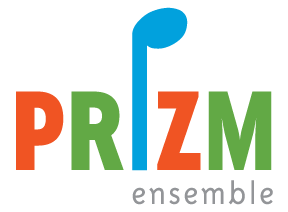Repertoire Databases
General
• The Composers Equity Project is a PDF database of underrepresented minority, women, and gender non-conforming composers with links to composer websites.• Institute for Composer Diversity is a huge database of women and underrepresented minority composers, with works listed and detailed information. Powerful search tools allow you to filter by instrumentation, identity, voice type, and more.
• League of American Orchestras Databases of Repertoire by Underrepresented Composers is a collection of 8 databases to help you find repertoire and resources.
• Major Orchestra Librarians’ Association Educational Resources for Music Performance/Ensemble Librarianship is also a great place to start: a collection of many databases which will help you find repertoire and resources.
• African Diaspora Music Project is a database of repertoire by composers of the African diaspora. Includes both vocal and orchestral repertoire.
• Music by Black Composers provides repertoire directories and resources. Particularly strong on violin repertoire.
• Anna’s Composer Database is a “growing list of great composers that you should know.” Currently about 122 composers. Also includes a blog and a suggested “100 days of listening” list to get you started.
• “Refresh your Sonic Palette: Contemporary Black Composers You Should Know” is a list of some of the most exciting Black composers working today.
• Hildegard Publishing Company publishes music by women composers. They have their own resources section of the website where you can learn more specifically about Black women composers and find their works in one place.
• Boulanger's Initiative is designed for everyone – musicians, performers, conductors, students, researchers, educators, artistic administrators, and anyone with a curious mind – this database provides access to thousands of works by women and gender-marginalized composers.
Orchestra
• The Accessible Diverse Orchestral Repertoire Equity (ADORE) Project is created by three collegiate orchestra conductors committed to broadening and bringing greater diversity to the repertoire of smaller orchestra programs.• Latin Orchestral Music is a database of over 9,000 orchestral works by Latin American composers from 24 different countries.
Voice
• The Spirituals Database “serves to highlight a selection of the historical and contemporary composers and singers who have forged art songs” out of African-American spirituals.• OpenScore Lieder is a free repository of art song scores. The website also allows you to transpose scores or listen to midi recordings of works as needed. While not a diversity database per se, there is growing coverage of scores by women and to a lesser extent, composers of color.
• Hensel Songs Online provides free access to art songs by Romantic composer Fanny Mendelssohn Hensel.
• Art Song Augmented provides information, recordings, and more on art songs by composers from underrepresented backgrounds.
Piano
• A Seat at the Piano promotes diversity in piano repertoire by providing a database as well as articles and featured composers.• Piano Columbia is a Columbian sheet music database founded by University of Memphis piano students.
Woodwinds
• Wind Quintets by Underrepresented Composers is a YouTube playlist of pieces just waiting to be programmed!Strings
• Cuarteto Latinoamericano Virtual Library is a collection of works for string quartet by Latin American composers, curated by the esteemed Cuarteto Latinoamericano.• Music by Black Composers provides repertoire directories and resources. Particularly strong in violin repertoire.
• String Repertoire by BIMOC This list builds upon the previous work of Rachel Barton Pine and Dr. Megan E. Hill and also includes works catalogued in the Living Black Composers Directory.
Looking to change how you teach? Start here!
General Music Pedagogy
• Pedagogical Resources for Antiracist Teaching is a bibliography that provides resources and key readings in the intersection between antiracism and pedagogy. The section “to assign in class” provides a selection of short, introductory readings that could help kickstart important conversations in your classes.• Music Inclusion Hub is your digital hub for culturally responsive, intersectional, mixed media music resources. Designed for youth in grades 2-12, early college, and beyond, the Music Inclusion Hub includes a variety of learning materials, resources, and music scores.
Instrumental Education
• Music by Black Composers offers a beginner-to-intermediate volume of pedagogically-oriented pieces for violin by Black composers, plus resources such as a coloring book, recordings, and more.Music Theory/Aural Skills
• Music by Women includes a database, a list of composers, and other resources dedicated to promoting the work of women composers.• Expanding the Music Theory Canon contains musical excerpts intended for use in the undergraduate Western tonal music theory core curriculum. Each theoretical concept is illustrated in a series of examples by women and BIPoC composers.
• Music Theory Examples by BIPOC Composers is a database of excerpts that can be used to teach topics in music theory. By the Composers of Color Resource Project.
Music History/Music Appreciation
• Music Instruction & Pedagogy Repository provides contextual essays and listening guides to under-performed works by underrepresented composers. Great options to supplement a Music Appreciation course!• Beyond Tokenism: Dismantling, Rethinking & Reframing Narratives in Music History Pedagogy contains contains philosophical essays and case studies about the purpose of teaching music history in higher education; essays that present more inclusive, equitable, global and decolonizing narratives for music history courses; and essays that present innovative pedagogical techniques that can promote greater equity and inclusion, and the creation of safe(r) spaces.
• Inclusive Early Music is a bibliography of articles on topics in early music (before 1750) that focus on underrepresented minority composers, including women, nonwestern composers, and composers of color.
Have any resources you'd recommend? Email us at [email protected]


